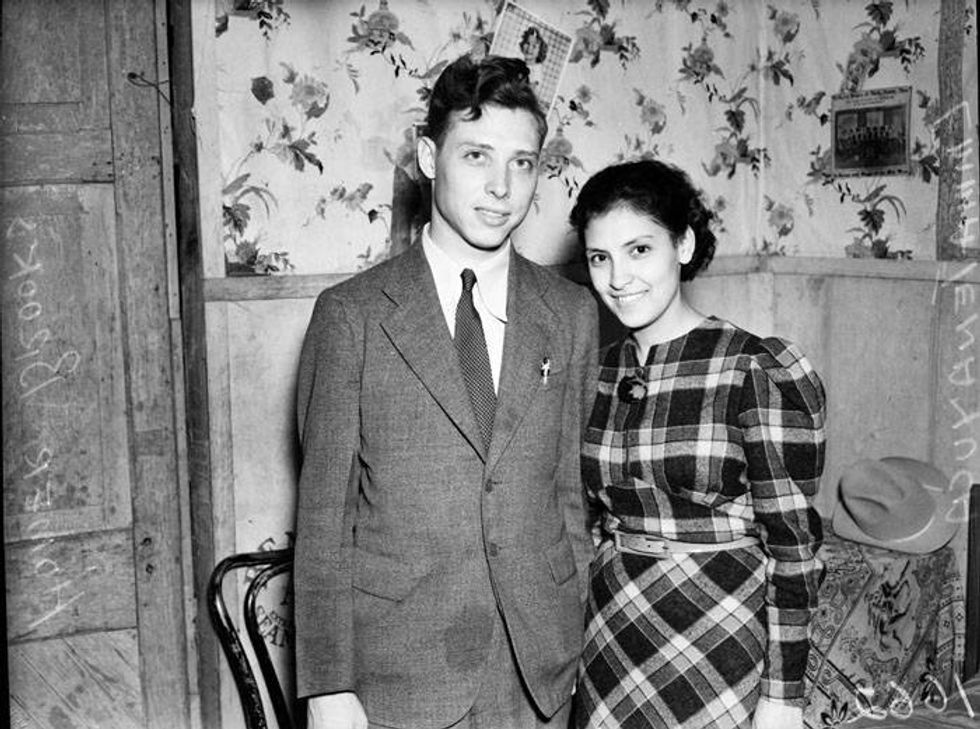Emma Tenayuca: The Unsung Latina Heroine of the 1930s Labor Rights Movement
Learn the story of Emma Tenayuca, a Latina who rose in the 1930s and challenged the oppressive labor practices of her time.

This article is part of a series developed in partnership with Project Pulso.
Throughout history, there are tales of heroes who have sparked revolutions and brought about change. And yet, some of the most compelling stories remain unsung. One such tale is that of Emma Tenayuca, who rose in the 1930s and challenged the oppressive labor practices of her time.
Born in San Antonio, Texas, in 1916, Emma’s story begins in a community where Mexican American working-class families, like her own, were caught in a web of economic disparity. It was against this backdrop that young Emma first became aware of the inequalities that would later shape her life’s mission.

The year 1938 saw the plight of pecan shellers in San Antonio reach a tipping point. Earning between $2 and $3 per week, these laborers faced back-breaking hours in hazardous conditions, so appalling that they spawned a local tuberculosis crisis. The situation worsened when their meager wages were slashed even further, driving the workers, many of whom were Latinas, to rise against their oppressors.
At the forefront of this rebellion stood Emma Tenayuca, who was only 22 at the time. Alongside her were other women, union organizers who had risen from the ashes of the industrial revolution. Together, they led 12,000 pecan shellers into a three-month-long strike. Emma, with her unwavering courage and determination, became a beacon of hope, leading the charge for better wages and improved working conditions.
As the echoes of the protest reverberated across San Antonio, 700 of these brave strikers were detained, a stark testament to the city officials’ fear of an awakened and empowered Latino community. Even as the government later admitted the egregious violation of the strikers’ civil rights, the damage had been done, casting a long shadow over the city’s handling of the strike.
The strike, however, ended with the somber replacement of the workers with shelling machines. Though many lost their jobs, their sacrifice was not forgotten. The city’s political climate shifted, as the overpolicing and suppression of the strikers came under scrutiny, their voices forever imprinted in the heart of San Antonio.
Despite the perceived defeat, the ripples of the Pecan Shellers’ Strike extended far beyond the city, contributing to the creation of the Fair Labor Standards Act of 1938. This legislation established a national minimum wage, immortalizing the fight of Emma Tenayuca and the shellers in the annals of labor reform history.
The tides of time swept Emma away from San Antonio as she was blacklisted for her association with the Communist Party. Relocating to California, she immersed herself in her studies, dedicating her life to teaching and remaining an unwavering advocate for the disadvantaged.
Emma Tenayuca’s tale may not be commonly told alongside the stories of her more recognized contemporaries, yet it reverberates with undeniable power and inspiration. Her fight for labor rights in the harsh landscape of the 1930s, her fearless advocacy for justice and equality, and her lasting legacy remain an emblem of strength and hope, inspiring future generations to continue the fight for labor workers’ rights for the betterment of our community.
For more Latino stories that your history classes probably didn’t teach you, don’t forget to follow Project Pulso.




